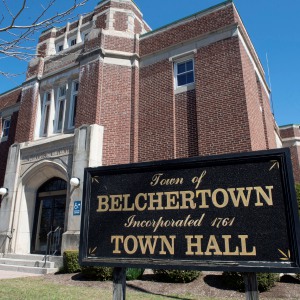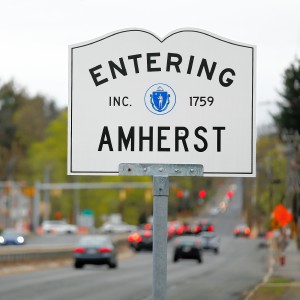Beacon Hill Roll Call, Dec. 25-29

| Published: 01-07-2024 8:33 PM |
THE HOUSE AND SENATE: There were no roll calls in the House or Senate last week.
This week, Beacon Hill Roll Call reports on the number of times in the 2023 session each senator sided with Democratic Gov. Maureen Healey and voted to sustain/support the governor’s vetoes of 24 items in the fiscal 2024 state budget. A “Yes” vote favors the funding of the item despite the governor’s veto. A “No” vote is a vote to support/sustain Healey’s veto.
The current makeup of the Senate is 36 Democrats and four Republicans. A two-thirds vote is required to override a gubernatorial veto in the 40-member Senate. The governor needs the support of 14 senators to sustain a veto if all 40 senators voted — and fewer votes if some members are absent or there are vacancies.
Healey fell far short of that goal as two votes was the most support she received on any veto. The Senate easily overrode all 24 vetoes, including 14 that were overridden unanimously.
Article continues after...
Yesterday's Most Read Articles
 Amherst Town Council calls emergency meeting to consider rescinding funds for Jones Library project
Amherst Town Council calls emergency meeting to consider rescinding funds for Jones Library project
 New group, ReConnect Western Mass, takes aim at smartphones in schools, social media use among youth
New group, ReConnect Western Mass, takes aim at smartphones in schools, social media use among youth
 Northampton Police search for suspect in water pellet shooting
Northampton Police search for suspect in water pellet shooting
 ‘Hands off our students now’: 100 at pro-Palestinian rally demand improved protections for internationals, divestment from Israel
‘Hands off our students now’: 100 at pro-Palestinian rally demand improved protections for internationals, divestment from Israel
 Northampton School Committee backs ‘strong’ budget, while acknowledging they likely won’t get it
Northampton School Committee backs ‘strong’ budget, while acknowledging they likely won’t get it
 Belchertown Select Board lowers Proposition 2½ override request to $2.9M
Belchertown Select Board lowers Proposition 2½ override request to $2.9M
None of the 36 Democrats ever sided with Healey to support/sustain a single veto.
Only two of the four Republicans ever sided with Healey to support/sustain a veto. They are GOP Sens. Ryan Fattman (R-Sutton) and Peter Durant (R-Spencer) who each voted ten times with Healey to support/sustain a veto.
NUMBER OF TIMES SENATORS SUPPORTED GOV. HEALEY’S VETOES IN THE 2023 SESSION: Gov. Healey vetoed 24 proposals that were approved by the Legislature in 2023. Here is how your senator fared in his or her support of Gov. Healey on the vetoes.
The percentage next to the senator’s name represents the percentage of times that he or she supported Healey. The number in parentheses represents the actual number of times the senator supported Healey.
Sen. Joanne Comerford, 0 percent (0); Sen. Paul Mark, 0 percent (0); Sen. Jacob Oliveira, 0 percent (0); Sen. John Velis, 0 percent (0).
GOV. BAKER PORTRAIT — Former Gov. Charlie Baker’s official portrait was unveiled to the public and the press in the lobby of the executive suite. The display space in the lobby is reserved for the 12 most recent governors, resulting in the 1950s portrait of the late Gov. Christian Herter being shuffled off to another location.
The $29,000 price tag for the portrait, painted by Pennsylvania-based artist Ellen Cooper, was paid for by Baker’s campaign committee. For many years, the cost of gubernatorial portraits was paid by the taxpayers. Former Gov. Mike Dukakis changed that by starting a custom of financing the portraits with private money.
SCHOOL BILLS — The Education Committee will hold a hearing on several bills on Jan. 10 in Room A-2 from 1-5 p.m. The hearing can also be viewed online at https://malegislature.gov/Events/Hearings/Detail/4815
Here are some of the legislation on the agenda:
FREE EXPRESSION IN LIBRARIES (S 2528) — Would prevent book removal from school or public libraries due to personal or political views of individuals or groups. Other provisions would empower school librarians and teachers to determine access to age-appropriate materials in school libraries; require public libraries to adopt the American Library Association’s Library Bill of Rights; and protect librarians from retaliation.
Supporters of the proposal say that while no books in 2022 were technically banned in the Bay State, there were 45 attempts to censor books and other library resources, the fourth highest number of any state. They note that most attempts are to censor materials or library programming about race, sexuality and gender identity.
“Massachusetts is home to the nation’s first public library and first public school because we have long appreciated that unabridged access to knowledge is key to opportunity and fulfillment,” says Senate sponsor Sen. Julian Cyr (D-Truro). “At this sad moment when hate and fear are driving too many cruel policies across the nation, and yes closer to home, Massachusetts must continue to champion values of equity and belonging. Indeed, books are among our most compelling windows into the myriad of human experiences and capture the breadth of knowledge. We cannot allow small-minded bans or politically opportunist censorship interfere with the right to read.”
“As a member of the LGBTQ+ community representing a highly diverse district, I understand how important it is to prevent unnecessary censorship of books and other library resources,” said House sponsor Rep. John Moran (D-South End). “This bill would help ensure access to age-appropriate materials for communities across the state.”
STUDENTS MUST TAKE A FINANCIAL LITERACY COURSE (H 4199) — Would require the Department of Elementary and Secondary Education to develop and assist in the implementation of curriculum on personal financial literacy to equip students with the knowledge and skills they need to become self-supporting and to enable them to make critical decisions regarding personal finances. All students in grades 9-12 would be required to take the course.
The components of the curriculum would include the understanding of loans, borrowing money, interest, credit card debt and online commerce; the rights and responsibilities of renting or buying a home; saving, investing and planning for retirement; banking and financial services; balancing a checkbook; state and federal taxes; charitable giving; preventing identity theft; avoiding online scams; and learning a basic understanding of cryptocurrencies.
“I filed [the bill] because I’ve seen firsthand the gap in personal financial literacy education for students across Massachusetts,” says sponsor Rep. Ryan Hamilton (D-Methuen). “While some students may learn helpful money practices at home, too many of our young people are thrust into life after high school with minimal understanding of key topics such as building credit, managing a budget or investing for one’s future. Failing to teach the next generation these critical skills while they are still in school misses an important opportunity to not only set up our students for success as young adults, but to help our educators, parents and caretakers learn more about subjects they too may have missed while in school.”
REQUIRE AIRWAY CLEARANCE DEVICES IN SCHOOLS (H 4207) — Would require all public and private schools to have a portable airway clearance device on-site. The bill defines portable airway clearance device as an FDA-approved medical device that uses manually created suction to remove blockage from the airway during a choking emergency. The popular brand name of the device is Life-Vac.
The bill requires each school nurse and cafeteria worker to be trained in the use of the devices and mandates that the Department of Elementary and Secondary Education in consultation with Department of Public Health establish guidelines and regulations for the implementation, training, support and supervision of this new requirement.
“The placement of a … device in each of our schools is but another measure to ensure safety and protect children and students while in school,” said sponsor Rep. Rodney Elliott (D-Lowell). “This is a minimal investment that would help to further ensure the health and safety of the commonwealth’s students. We know choking can cause irreversible brain damage or death after four to six minutes. So even the simplest technology such as a LifeVac device, that has been approved by the FDA, can help save lives.”
QUOTABLE QUOTES — By the Numbers Edition: An analysis of USDA data compiled by “A Hunger Free America” concluded that food insecurity in the United State is on the rise due to the expiration of federal benefits that were subsidizing nutrition programs during the COVID-19 pandemic. Here are some of the numbers:
363,433.
Number of Massachusetts residents living in food insecure households between September 2021 and October 2021
535,920.
Number of Massachusetts residents living in food insecure households between September 2023 and October 2023. A 47.5 percent increase over 2021.
Delaware (21.4 percent), Nebraska (21 percent), Texas (20.7 percent), Georgia (20 percent), Kentucky (19.7 percent) and Louisiana (19.7 percent).
The six states with the highest rates of food insecure children.
New Hampshire (6.1 percent), Minnesota (7.3 percent), Vermont (7.7 percent), Colorado (8.4 percent) and North Dakota (8.6 percent).
The states with the lowest rates of food insecurity overall.
9.1 percent.
Percentage of Bay State residents who lived in food insecure households between 2020 and 2022.
11.9 percent.
Nationwide percentage of who lived in food insecure households between 2020 and 2022.
Bob Katzen welcomes feedback at bob@beaconhillrollcall.com.






 Community printing hub takes shape in Easthampton
Community printing hub takes shape in Easthampton Amherst Town Council approves University Drive overlay district
Amherst Town Council approves University Drive overlay district
